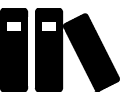

Cancellation, transfer, and refund requests will not be
honored once you have logged in and accessed the course.



Sign in/up with Facebook
Sign in/up with X
Sign in/up with Linkedin
Sign in/up with Google
Sign in/up with Apple


Wouldn't it be a good idea to create a course?
